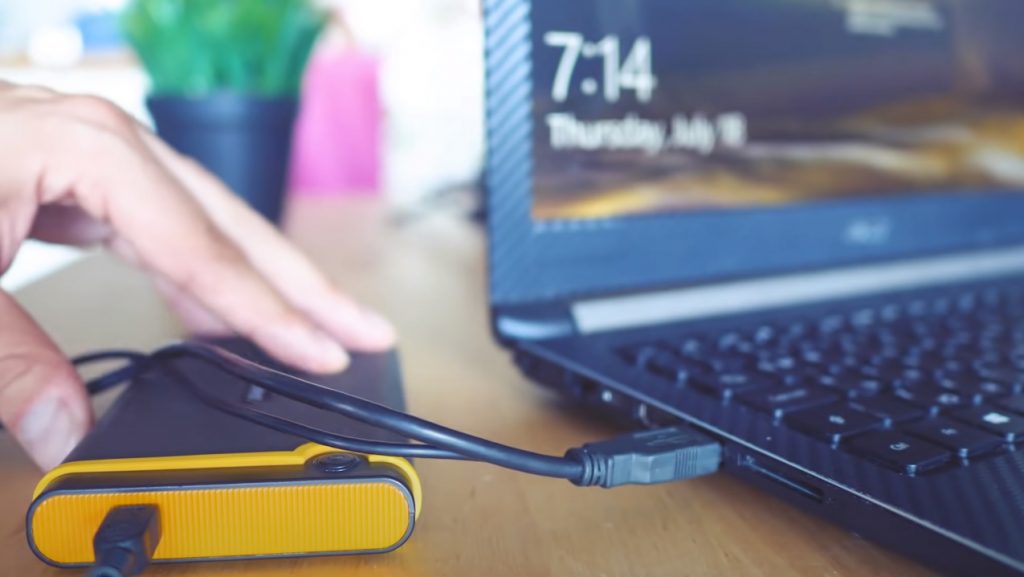How to Choose an External Hard Drive?
SSDs are much faster than HDDs External Hard Drive, but they are much more expensive. HDDs are cheaper but larger and slower and easier to damage.
Although cloud storage has largely replaced hardware storage today, you can easily access the files you store on your laptop, smartphone, smartwatch, and tablet. However, still, especially in Less developed countries, we have not reached the level of technology that we can easily access our files in these cloud spaces.
An alternative to cloud storage is to buy an external hard drive. If your laptop does not have enough capacity to store your files, or if you want to have a backup or backup file of your files, an external hard drive is a device you need.
There are different types of external hard drives on the market, and you may be wondering what the best external hard drive for you is? In the following, we want to guide you in buying external memory.
What should you pay attention to when buying an external hard drive?
Memory capacity
Definitely, the most important feature that you should pay attention to when buying an external hard drive is its memory capacity. It is of no value if you have an advanced hard drive with many features, such as the ability to share files wirelessly but do not have enough memory. But how much capacity do you need?
If you need an external hard drive to store your documents, photos, or other media files, or laptop or tablet memory does not meet your needs, a mid-range external hard drive with one terabyte of memory is sufficient.
If you need a flash drive to move your files, a 64GB flash drive is enough for you, and you do not need to spend a lot and buy an external hard drive.
SSD or HDD
There are two main types of external hard drives:
- SSD hard drive
- HDD hard drive
HDDs (Hard Drive Disks) use rotating magnetic disks to store data. SSDs (Solid-State Drives) use small-valve transistors in cells that can be turned on or off based on electrical pulses. These drives do not have any removable partition memory, and this is what they are called.
SSDs are much faster than HDDs, but they are much more expensive. HDDs are cheaper but larger and slower and easier to damage.
External hard drive transfer speed
Memory capacity is not the only thing you need to consider when it comes to external hard drives, but transfer speeds are also important. The transfer speed is very important if you regularly transfer files between your external hard drive and other devices such as your tablet or laptop. If the transfer speed of your external hard drive is low, it will waste a lot of time.
Two factors that play an important role in external hard drive speed:
- Storage technology
- Connector type
Overall, external SSDs are much faster than HDDs. SSDs are usually much more expensive and have a lower capacity than HDDs. Most external hard drives today are connected to a USB.
USB 2.0 is a relatively old connection device with a very low speed for transferring large and numerous files. So, if you want to do something other than transferring small files to your external hard drive, a USB 2.0 hard drive is not enough for you, but it has a lower price. The maximum transfer speed of this type of USB is about 480 bytes per second.
USB 3.0, USB 3.1 Gen1, and USB 3.2 Gen1 are much faster than USB 2.0, but there are a few differences. These USBs have a maximum transfer rate of about 5 GB per second. USB 3.1 Gen2 and USB 3.2 Gen2 have a speed of 10 Gbps. USB 3.2 or USB 3.2 2 × two speeds even higher and up to 20 Gbps.
In addition to speed, they also split USBs in appearance. USB-A is the most common type of USB on external hard drives, which is equipped with a rectangular box, and you can only connect it to the USB port of other devices from one side. USB-C is newer, smaller, and more compact, and you can plug it into the USB port of your laptop or tablet from either side.
Some external hard drives have SATA or Firewire ports, but because these ports are less common on most devices today, you should avoid buying these drives.
Portability and durability
If you only need one external hard drive for backup in your home, networked memory (NAS) is enough for you. These drives connect wirelessly to your local network. However, portability is an important feature if you want to carry your hard drive and transfer your files. The lighter and smaller the portable hard drive, the better. Due to their smaller size, SSDs are more suitable for those who need a portable external hard drive but are more expensive than HDDs.
Another thing to consider when buying a hard drive is its durability. While most external drives today are sturdy bezels, SSDs are more durable than HDDs due to the lack of moving parts.
Hard Drive security
If the data you want to store on your external hard drive is sensitive data that other people should not access, it is best to buy a hard drive compatible with encryption software.
External hard drive compatibility
Most external hard drives are formatted for a specific operating system. For example, a hard drive formatted for Windows 10 may have problems with the Macintosh operating system and vice versa. Some external hard drives are also optimized for the Linux operating system. Therefore, you should also pay attention to this issue when buying an external hard drive.

